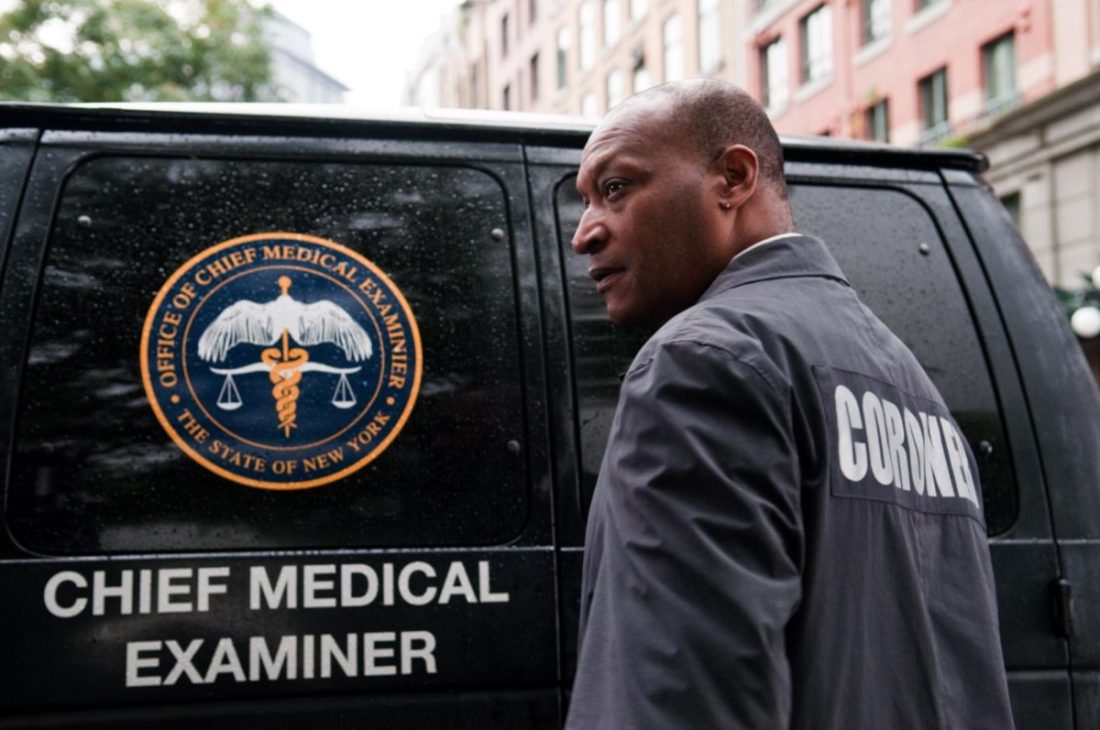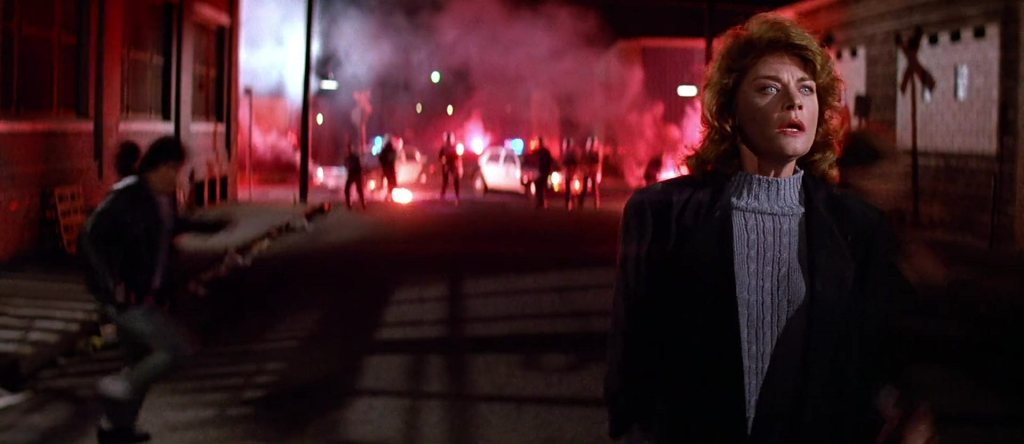I was torn about which movie I should watch first on my new TV. It’s kind of a big deal. Whenever we got a new TV or made a change to the surround sound, the go-to in the house I was raised in was True Lies, but there hasn’t been a cutting edge way to view that film since it released on DVD as subsequent versions have looked like ass. So I wanted the momentous movie to be something I’ve seen several times, for comparison purposes, and something that would demonstrate the inky blacks and high contrasts possible on OLED display technology. (Who am I kidding? I didn’t even know what the “O” in OLED stood for.) I deliberated over this decision for what felt like hours, halfheartedly testing big budget Hollywood flicks here and there, before going all in on 8 1/2.
A sixty year old black and white movie may not seem like the perfect test drive for a new TV, but I marveled over every pore in Marcello Mastroianni’s face, scrutinized every wrinkle around his haunting eyes, and distinguished every armpit hair on the beautiful Italian women who surround him. Considering I first saw 8 1/2 on a badly worn VHS, then a handful of times on plain ol’ DVD, to say the Criterion Collection’s latest restoration is an upgrade is an understatement.
8 1/2 is Federico Fellini’s semi-autobiographical tale—and, by his own count, his eighth and a half movie—which depicts a director who’s torn about what his next picture is about, so much so that he frequently dodges his eager collaborators’ inquiries. Constantly hounded by his wife, his wife’s protective friends, his mistress, his producer, a brutally honest film critic, and a chain-smoking entourage of jackals, Mastrioanni portrays Guido as a filmmaker who glides along the edge of stress-induced madness, avoiding his problems whenever possible. (At one point he’s literally dragged to a press junket like a tantrum-throwing child.) The meta aspects emerge as he’s told he’s too young and inexperienced to make a film about childhood memories, which is ultimately the very thing Fellini is doing.
The film opens with a dream sequence in which Guido levitates over gridlocked traffic and takes flight through the clouds. Moments later he frantically tries to untie the rope he discovers fastened to his ankle, but it’s too late: the man flying him like a kite laughs as he jerks the semi-fictional movie director back down to earth. The “real” Guido awakens from the dream-turned-nightmare with a start. Florescent lights flicker to life as Ride of the Valkyries plays and, for the first time, we see Guido’s face framed in a mirror, his weathered eyes suggesting he’s weighed down by far more than your average forty-something.
Guido is a man who copes with the pressures of the real world—poorly—by escaping into childhood memories and self-serving fantasies. His last picture was a rousing success and everyone’s dying to know what’s next, but even Guido’s not sure what he’s got. He just knows a lot of people are counting on him and he’s the reason an enormously expensive film set has been constructed on the beach. Guido has postponed production, ostensibly to relax at a spa where all the other guests move in lockstep with the music. There the line between fantasy and reality is blurred again as he’s served mineral water by his ideal starlet, played by Claudia Cardinale, who haunts his thoughts like a ghost. It’s clear early on you can never be 100% sure what is real and what is fantasy, if Fellini even cares to make distinction.
In one flashback/dream/fantasy which perhaps represents Fellini’s own sexual awakening, a twelve year old Guido and a handful of his delinquent friends visit Saraghina, a large woman who lives on the beach and dances seductively for anyone who’ll watch. The boys rally for her to emerge from the remnants of an abandoned building, which she does like a vampire raised from the dead. Later, Guido imagines all the important women from his life (including Saraghina, a showgirl, his wife, his mistress, and a woman he only saw in passing once) living in a harem where they feed, bathe, and pamper him. There they live only to serve until they reach the age of forty, at which point they must ascend to the attic, never to be seen again. However, even this juvenile fantasy devolves into a nightmare as the women revolt against his misogynistic ways. The fact that even Guido’s personal fantasies become self-critical represents another facet of his conflicted character. Consider how much he hates the film critic and values his suggestions… all the way up to the point he fantasizes about him hanging himself in a theater.
But talking about plot and meaning completely misses the point of a Fellini film—those elements don’t even become clear on the first or second watch. It’s like praising the acting and the set design in a porno. What really drew me to his movies (and, I imagine, literally every other fan in existence) was the eye candy. The poetry of his camera movements and precise blocking is unrivaled. Every scene contains more richness than most filmmakers muster in an entire film. The camera frequently pans to performers who seem to be standing in place, waiting for their cue for just a little too long, but it’s always intentional, as if Fellini wants us to believe that their actions are only significant if we are watching. Many have tried to ape his style and usually end up looking dreadfully pretentious.
I could watch Fellini films every week of my life—and nearly did for a significant chunk of my early twenties. 8 1/2 is my favorite of the director’s films, precisely because the eye candy is laid on so thick. Some people enjoy rich fudge. I’m one of ’em. Even if it’s not your cup of tea, you gotta admit: Marcello Mastrioanni sure looks cool in sunglasses.










